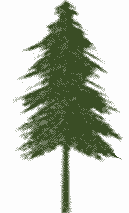Translate this page:
Summary
Phytelephas aequatorialis or also known as Vegetable Ivory or Corozo is a tropical, dioecious palm found in Australia, Brazil, Central America, Ecuador, Panama, Peru, and other parts of South America. It is a solitary palm growing about 16 m tall, with trunk diameter of up to 30 cm. It has a large and round leaf crown, with each leaf measuring about 5-6 m long. It is the main source of a botanical alternative to ivory known as Ecuadorean vegetable ivory or tagua. The seed is edible. Liquid endosperm is consumed as a drink. The leaves are cooked and the apical buds are eaten as a vegetable. The endocarp is very hard and used for making buttons, chess pieces, etc. The leaves are used as a thatch.
Physical Characteristics

 Phytelephas aequatorialis is an evergreen Tree growing to 12 m (39ft) by 5 m (16ft) at a medium rate.
Phytelephas aequatorialis is an evergreen Tree growing to 12 m (39ft) by 5 m (16ft) at a medium rate.
See above for USDA hardiness. It is hardy to UK zone 10. The flowers are pollinated by Beetles, Flies, Bees. The plant is not self-fertile.
Suitable for: light (sandy), medium (loamy) and heavy (clay) soils and prefers well-drained soil. Suitable pH: mildly acid, neutral and basic (mildly alkaline) soils. It can grow in semi-shade (light woodland) or no shade. It prefers moist soil.
UK Hardiness Map
US Hardiness Map
Synonyms
Palandra aequatorialis (Spruce) O.F.Cook
Plant Habitats
Edible Uses
Edible Parts: Apical bud Fruit Leaves Seed
Edible Uses: Drink
The seed is eaten in various ways. When immature, the liquid endosperm is used as a refreshing drink[768 ]. As it becomes harder and more jelly-like, it is eaten as a food[768 ]. The orange, fleshy fruit is eaten as a delicacy[768 ]. Leaves - cooked[763 ]. The apical bud, often known as a 'palm heart', is eaten as a vegetable[763 ]. Eating this bud leads to the death of the tree because it is unable to make side shoots[K ].
References More on Edible Uses
Medicinal Uses
Plants For A Future can not take any responsibility for any adverse effects from the use of plants. Always seek advice from a professional before using a plant medicinally.
None known
References More on Medicinal Uses
The Bookshop: Edible Plant Books
Our Latest books on Perennial Plants For Food Forests and Permaculture Gardens in paperback or digital formats.

Edible Tropical Plants
Food Forest Plants for Hotter Conditions: 250+ Plants For Tropical Food Forests & Permaculture Gardens.
More

Edible Temperate Plants
Plants for Your Food Forest: 500 Plants for Temperate Food Forests & Permaculture Gardens.
More

More Books
PFAF have eight books available in paperback and digital formats. Browse the shop for more information.
Shop Now
Other Uses
Beads Buttons Thatching
Other Uses: The endocarp of the seed is very hard. Known as vegetable ivory, it is used for making buttons, chess pieces and ornamental articles of various kinds[324 , 768 ]. The leaves are used as a thatch[768 ].
Special Uses
References More on Other Uses
Cultivation details
A dioecious species, both male and female forms need to be grown if fruit and seed are required[768 ].
References Carbon Farming Information and Carbon Sequestration Information
Temperature Converter
Type a value in the Celsius field to convert the value to Fahrenheit:
Fahrenheit:
The PFAF Bookshop
Plants For A Future have a number of books available in paperback and digital form. Book titles include Edible Plants, Edible Perennials, Edible Trees,Edible Shrubs, Woodland Gardening, and Temperate Food Forest Plants. Our new book is Food Forest Plants For Hotter Conditions (Tropical and Sub-Tropical).
Shop Now
Plant Propagation
Seed -
Other Names
If available other names are mentioned here
Vegetable ivory, Corozo, Ivory palm, tagua - Spanish, Coroso, Tagua, Trapa, Cade,
Native Range
SOUTHERN AMERICA: Ecuador (west)
Weed Potential
Right plant wrong place. We are currently updating this section.
Please note that a plant may be invasive in one area but may not in your area so it's worth checking.
Conservation Status
IUCN Red List of Threatened Plants Status : Status: Near Threatened

Growth: S = slow M = medium F = fast. Soil: L = light (sandy) M = medium H = heavy (clay). pH: A = acid N = neutral B = basic (alkaline). Shade: F = full shade S = semi-shade N = no shade. Moisture: D = dry M = Moist We = wet Wa = water.
Now available:
Food Forest Plants for Mediterranean Conditions
350+ Perennial Plants For Mediterranean and Drier Food Forests and Permaculture Gardens.
[Paperback and eBook]
This is the third in Plants For A Future's series of plant guides for food forests tailored to
specific climate zones. Following volumes on temperate and tropical ecosystems, this book focuses
on species suited to Mediterranean conditions—regions with hot, dry summers and cool, wet winters,
often facing the added challenge of climate change.
Read More
Expert comment
Author
Spruce
Botanical References
Links / References
For a list of references used on this page please go here
A special thanks to Ken Fern for some of the information used on this page.
Readers comment
| Add a comment |
|
If you have important information about this plant that may help other users please add a comment or link below. Only comments or links that are felt to be directly relevant to a plant will be included. If you think a comment/link or information contained on this page is inaccurate or misleading we would welcome your feedback at [email protected]. If you have questions about a plant please use the Forum on this website as we do not have the resources to answer questions ourselves.
* Please note: the comments by website users are not necessarily those held by PFAF and may give misleading or inaccurate information.
To leave a comment please Register or login here All comments need to be approved so will not appear immediately.
|
Subject : Phytelephas aequatorialis
|
|
|
|